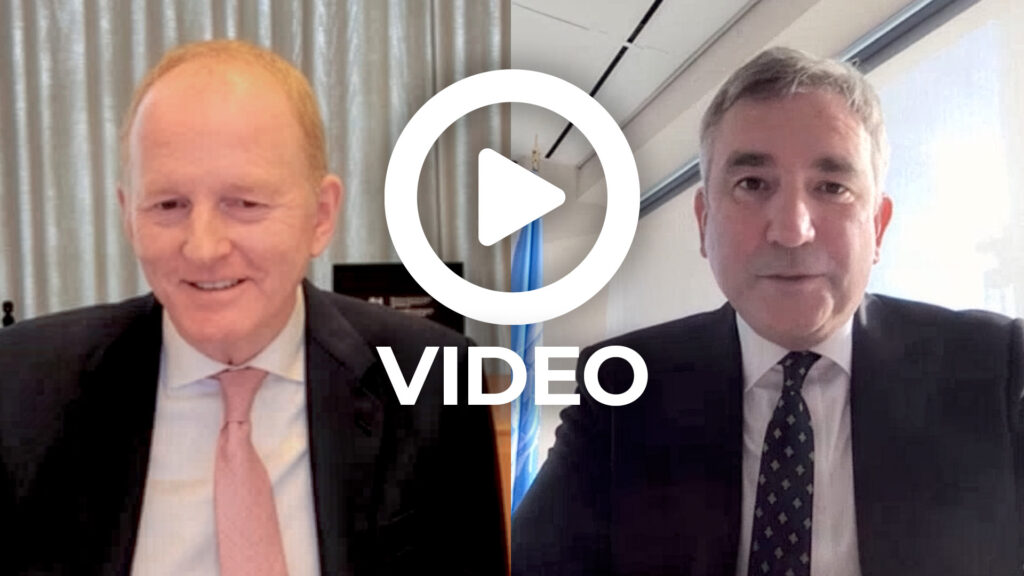
OFSI: 2023-24 Year in Review – What Have We Learnt?
On 21 March 2025, the UK’s Office of Financial Sanctions Implementation (OFSI) published its 2023-24 Annual Review (the Annual Review), entitled Engage, Enhance, Enforce.1
The Annual Review provides a snapshot of OFSI’s operations over the past year, highlighting the impact of financial sanctions and seeking to demonstrate OFSI’s efforts to encourage compliance. Overall, the Annual Review seeks to ensure transparency and clarity in the regulatory environment, and support the growth of legitimate businesses, while illustrating OFSI’s enforcement of sanctions against those who are in contravention.
We set out below an overview of the key findings from the Annual Review, highlighting the main takeaways within the framework of the UK’s efforts to enforce sanctions effectively.
Key findings
The Annual Review addressed various developments:
- Engagement: OFSI has placed a key focus on engaging with a variety of stakeholders across industries in its attempt to create a cohesive system of compliance and enforcement. For example, OFSI reported that it conducted 105 engagement outreaches, including 20 conferences. OFSI was also visible outside of the UK, undertaking 245 engagements internationally, through multilateral and bilateral forums, recognising the need for co-operation across the globe for the effective enforcement of sanctions. Similarly, OFSI reported the creation of its secondment programme with the US Office of Foreign Assets Control in February 2023, as part of its efforts to collaborate with partners in relation to sanctions expertise, practices and information.
- Resourcing: OFSI has recognised the importance of investment in resource to enable effective implementation and enforcement of sanctions. OFSI increased its staffing, from around 40 on the eve of the Russian invasion of Ukraine in 2022, to 135 members across all its functions (which has since been increased to around 150 people).2 Particularly noteworthy are the staffing levels reported in OFSI’s licensing and enforcement teams, which increased fourfold.
- Sanctions implementation: OFSI was active in terms of implementation, adding a further 564 designated persons to its consolidated list. By the end of 2023-24, there were a total of 4,331 entries across 35 regimes, consisting of 3,463 individuals, 15 vessels, and 853 entities. Unsurprisingly, Russia was the most featured regime, responsible for 46% of the consolidated list (or 2,001 entries). Of the individuals and entities, 278 were designated as asset freeze targets.
- Licensing: OFSI reported a flurry of licence requests, with decisions being made in relation to 1,401 cases, an increase of 503 from the previous reporting year. The increase in resourcing and a larger engagement function also enabled OFSI to reduce its caseload to under 550 by end March 2024 (from over 1,200 cases in 2022).
- Enforcement: OFSI reiterated its “clear commitment to enforcing sanctions robustly” and reported the below enforcement information:
- 396 cases were recorded, 288 of which arose through self-reporting.
- Financial services was the sector which accounted for the most cases (229). The legal sector was also a significant contributor of cases (44).
- 242 cases were closed (three times the number of closures for the previous year).
- As of April 2024, 208 cases were assigned for investigation (compared to 172 matters a year earlier).
- The vast majority of closed cases (194 out of 242) involved no sanctions breaches (or no decision regarding a breach) and the provision of a no further action letter by OFSI.
- One case involved a breach resulting in a public disclosure (Wise Payments Limited (Wise)).3
- In August 2024, OFSI made its first proactive civil monetary penalty and imposed a penalty on Integral Concierge Services Limited.4
Interestingly, OFSI noted that a number of enforcement cases are due to be publicised in 2025.
Comment
The Annual Review raises some interesting points and questions. In particular, the review’s evidence demonstrates a clear commitment to engaging and collaborating with stakeholders and other enforcement bodies and regulators (both domestically and internationally), to ensure effective implementation and enforcement of sanctions. However, whether this level of engagement can be sustained remains to be seen. Despite a noticeable (and much needed) increase in the resourcing of OFSI, questions persist in relation to case management and processing speed. For example, the regulator only issued its first post-Russia 2022 invasion civil monetary penalty in the months leading up to the November 2024 publication of the Treasury Committee Oral evidence Work of OFSI.5 While advancements have seemingly been made in relation to the consideration of licence applications, those in practice will be all too aware of the delays and confusion that remain in the process.
Finally, a major area to keep under review will be enforcement. Whilst OFSI has dealt with several cases, to date only 12 have led to public enforcement actions.6 This raises concerns as to whether OFSI has “robustly” enforced sanctions and may undermine the overall effectiveness of UK sanctions.
Whether there will in fact be an increase in enforcement action in 2025, as promised by OFSI in the Annual review, remains to be seen.
OFSI’s publicised cases also raise concerns as to its assessment of cases, which may be viewed as harsh. For example, in the Wise case referred to above, OFSI deemed that the withdrawal of just £250 from the business account of a company controlled or owned by a designated person amounted to a “moderately severe” breach.7 This was despite the fact that (i) Wise voluntarily and completely disclosed the breach; (ii) there was no attempt to deliberately evade sanctions; (iii) the value involved was low; and (iv) remedial steps were taken.8
Given that over 70% of cases received by OFSI in 2023-24 were self-reported, and the regulator “encourages everyone to self-report suspected breaches of financial sanctions“, it is essential that OFSI’s approach to penalising companies who unintentionally breach sanctions remains consistent and fair, to encourage and foster an environment conducive to self-reporting. Otherwise, OFSI risks seeing a reduction in the number of self-reports, as companies fear the possibility of harsh public repercussions, which could undermine co-operation and enforcement.
Key Takeaways
Our view is that the outcomes of the Annual Review should prompt operators to consider the following key points:
- Prioritise compliance: In light of OFSI’s enhanced resourcing and enforcement capabilities, ensuring adherence to sanctions is increasingly crucial in order to mitigate risks of incurring penalties from the regulator in the first place, and to avoid wider reputational damage from publication of any such penalties.
- Stay informed: Operators should be aware of the latest guidance and updates from OFSI. HFW offers a horizon scanning service to clients providing operators with a regular review of the latest updates in order to remain informed and compliant with the evolving sanctions regimes.
- Implement robust compliance and training programs: Internal policies and procedures should be developed, maintained and regularly reviewed in order to detect and prevent any sanctions breaches. Likewise, employees should be equipped with the knowledge to be able to identify, record and report any breaches or sanctions red flags. This will of course enable timely self-reporting, which as noted above could be an important mitigating factor in any enforcement action.
- Engage with OFSI: It is advisable to proactively seek guidance or clarification from OFSI when sanctions compliance uncertainties arise.
The Sanctions team at HFW provides a full service global sanctions, export controls and regulatory offering to assist clients from inception to conclusion of the sanctions risk lifecycle, and is well placed to offer comprehensive advice and further guidance on any of the issues raised in this briefing.
Ryan Whittaker, Trainee Solicitor, assisted in the preparation of this briefing.
Footnotes
- OFSI Annual Review 2023-24: Engage, Enhance, Enforce – GOV.UK, accessed 25 March 2025.
- Oral evidence: Work of the Office of Financial Sanctions Implementation, HC 418 – Tuesday 26 November 2024, accessed 25 March 2025.
- Wise_Payments_Limited_Disclosure_Notice_31AUGUST23.pdf.
- Report_of_Penalty_for_Breach_of_Financial_Sanctions_-_ICSL.pdf.
- Oral evidence: Work of the Office of Financial Sanctions Implementation, HC 418 – Tuesday 26 November 2024 – Q23, accessed 25 March 2025.
- Enforcement of financial sanctions – GOV.UK, accessed 25 March 2025.
- Wise_Payments_Limited_Disclosure_Notice_31AUGUST23.pdf, para 21.
- Ibid, para 22.











-1024x683.jpg)